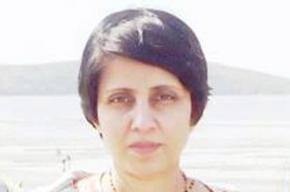Jacintha Saldanha should not have died

The sad tale of British Indian nurse Jacintha Saldanha taking her life following a prank telephone call by two larrikin Australian radio DJs seems like something of a bad script from a dark comedy.
“Dark” because a woman has ended up taking her life; and “comedy” because the Australian DJs concerned, Michael Christian and Mel Greig, probably had a hoot and expected their gullible listeners to laugh with them.
Jacintha, 46, a mother of two teenagers, answered the prank call by the DJs to the King Edward VII Hospital, where the pregnant Kate Middleton was admitted with a severe case of morning sickness. The DJs impersonated (quite badly, reports say) the Queen and Prince Charles, while trying to glean information on Kate’s health condition.
Nurse Jacintha believed the callers to be who they said they were, and consequently passed the telephone to a colleague to answer. Days later, she took her life when it was revealed that it was a hoax call she had answered.
While it could be argued that the intentions of the DJs, and the radio station concerned, were not to drive another human being to end their life, the call was obviously to humour themselves and their listeners with unethically gleaned information of someone’s private life – in this case Kate Middleton.
This is not about Jacintha Saldanha because she was of Indian origin, but more about invasion of people’s privacy, and professionalism on the airwaves.
Royalty she may be, and very much a public figure, surely Kate Middleton and her husband Prince William need to keep their private moments just that – private.
That raises the question that to what extent will some radio stations go to gain “exclusives” in order for them retain their audiences in these times of modern media, which has been creating a financial dent in their sides.
You’ve got to draw the line somewhere.
Journalistic professionalism, ethics and quality will go a long way in keeping struggling media bobbing in the long run.
The sad tale of British Indian nurse Jacintha Saldanha taking her life following a prank telephone call by two larrikin Australian radio DJs seems like something of a bad script from a dark comedy. “Dark” because a woman has ended up taking her life; and “comedy” because the Australian DJs...
The sad tale of British Indian nurse Jacintha Saldanha taking her life following a prank telephone call by two larrikin Australian radio DJs seems like something of a bad script from a dark comedy.
“Dark” because a woman has ended up taking her life; and “comedy” because the Australian DJs concerned, Michael Christian and Mel Greig, probably had a hoot and expected their gullible listeners to laugh with them.
Jacintha, 46, a mother of two teenagers, answered the prank call by the DJs to the King Edward VII Hospital, where the pregnant Kate Middleton was admitted with a severe case of morning sickness. The DJs impersonated (quite badly, reports say) the Queen and Prince Charles, while trying to glean information on Kate’s health condition.
Nurse Jacintha believed the callers to be who they said they were, and consequently passed the telephone to a colleague to answer. Days later, she took her life when it was revealed that it was a hoax call she had answered.
While it could be argued that the intentions of the DJs, and the radio station concerned, were not to drive another human being to end their life, the call was obviously to humour themselves and their listeners with unethically gleaned information of someone’s private life – in this case Kate Middleton.
This is not about Jacintha Saldanha because she was of Indian origin, but more about invasion of people’s privacy, and professionalism on the airwaves.
Royalty she may be, and very much a public figure, surely Kate Middleton and her husband Prince William need to keep their private moments just that – private.
That raises the question that to what extent will some radio stations go to gain “exclusives” in order for them retain their audiences in these times of modern media, which has been creating a financial dent in their sides.
You’ve got to draw the line somewhere.
Journalistic professionalism, ethics and quality will go a long way in keeping struggling media bobbing in the long run.









Leave a Comment